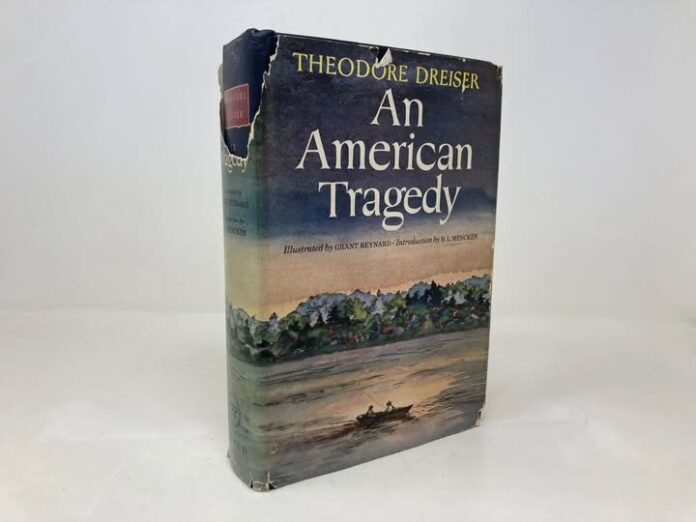I unearthed it in the dim corner of a used bookstore—a weathered copy of Theodore Dreiser’s An American Tragedy, its spine creased but its weight promising something profound. Published in 1925, the book felt like a relic of a bygone era, yet its story gripped me with a force that felt unnervingly current. I slipped it into my bag, and in the months since, I’ve found myself unable to shake its hold on me.
I’ll confess: I’ve become consumed by Clyde Griffiths’ journey, not as a detached reader, but as though his story has woven itself into the fabric of my own life. His tale of ambition, desire, and moral collapse has haunted my thoughts, seeping into my dreams with questions about the American Dream, the cost of aspiration, and the devastating consequences of our choices. An American Tragedy unfolds as a sprawling, unflinching portrait of a young man’s rise and fall, a narrative that captures the dark underbelly of early 20th-century America. Clyde, the son of poor, religious street preachers in Kansas City, grows up yearning for wealth, status, and the glittering life he glimpses in the affluent circles around him. At sixteen, he takes a job as a bellhop in a luxurious hotel, where his first taste of extravagance ignites an insatiable hunger for more. But a tragic car accident—linked to a joyride with friends—forces him to flee the city, setting the stage for his unraveling.
Years later, Clyde lands in upstate New York, working at his wealthy uncle’s factory. There, he becomes entangled with two women: Roberta Alden, a sweet but poor factory girl whom he seduces and impregnates, and Sondra Finchley, a beautiful socialite who represents the elite world he craves. Torn between his genuine affection for Roberta and his obsession with Sondra’s status, Clyde’s desperation peaks when Roberta demands marriage. In a chilling act of moral failure, he plots her murder, luring her to a remote lake under the guise of a romantic outing. Though he hesitates at the last moment, a fateful accident—or perhaps his own subconscious intent—results in Roberta’s drowning. Clyde’s attempt to cover up the crime unravels quickly, leading to his arrest, trial, and eventual execution, a grim end that exposes the hollow promise of the American Dream for those who chase it at any cost.
Reading An American Tragedy during a time of personal uncertainty amplified its impact—I, too, have felt the pull of ambition, the weight of societal expectations, and the fear of failure in a world that equates success with worth. Dreiser’s prose, often criticized as heavy, became a mirror to my own struggles, reflecting the tension between desire and morality that defines so much of the human experience. The novel’s power lies in its raw honesty: Clyde’s story isn’t just a cautionary tale, but a searing critique of a society that dangles wealth and status as the ultimate prize, while punishing those who falter in their pursuit. An American Tragedy remains a haunting, timeless exploration of ambition’s price, a narrative that forces us to confront the fragility of our dreams and the devastating choices we make in their name. Somewhere, I’m certain, another young dreamer is stepping into a world of glittering promises, unaware of the tragedy that may await.

